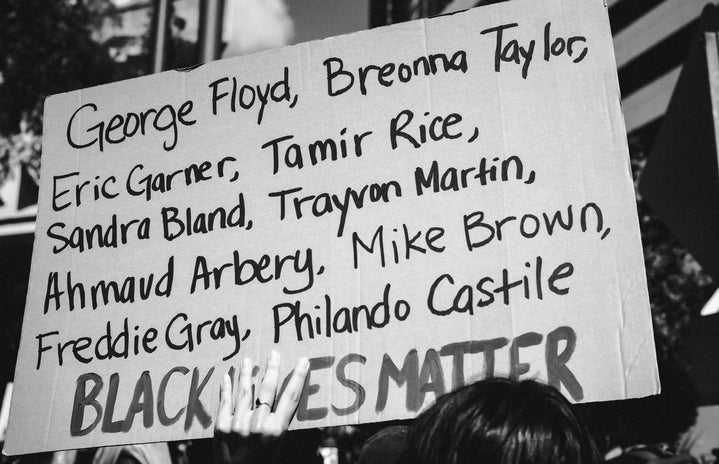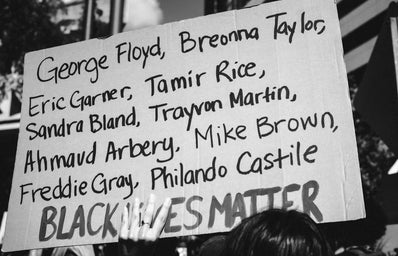On May 25, 2020, George Floyd was killed in police custody after Derek Chauvin knelt on his neck for roughly nine minutes. In this time, George Floyd plead to Officer Chauvin, “I can’t breathe,” begging him to stop. This senseless murder became an international headline and acts to explicitly demonstrate race issues within the United States, specifically in regard to instances of police brutality.

On April 20, 2021, Derek Chauvin was found guilty on all three counts in his trial against the State of Minnesota for the actions that took place on May 25, 2020: Unintentional Second-Degree Murder (guilty), Third-Degree Murder (guilty), and Second-Degree Manslaughter (guilty).
Derek Chauvin has officially been held accountable for the crime that he committed almost a year ago today. As we approach the anniversary of George Floyd’s untimely death, we must closely examine the flaws pertaining to the American police force’s actions. This was not an isolated incident. It was only one of many that have taken place over the course of the last year. It goes without saying that the outcome of this case doesn’t reflect anything other than surface-level change. Yes, attention has been brought to the issue of police brutality, but how long will we be talking about it before courses of action are actually implemented to prevent it? This one conviction won’t magically make racial profiling or targeting disappear within the police force. This is not justice, this is simply accountability.

Nothing can justify the years upon years of blatant racism that people of color (POC) have endured at the hands of Americans. As a white woman, this is something I will never understand.
However, I would argue that accountability could potentially be the first step to reconciliation. By identifying an issue at its root and plucking at it, we might be able to affect some real change. The verdict in Derek Chauvin’s case can help ease, but not fully break, the tensions that have been sustained by years of prejudice. It’s my hope that one day, all people like Derek Chauvin, who take advantage of their positions of power and have no regard for human life, are held accountable. Maybe then we can achieve some form of justice.



